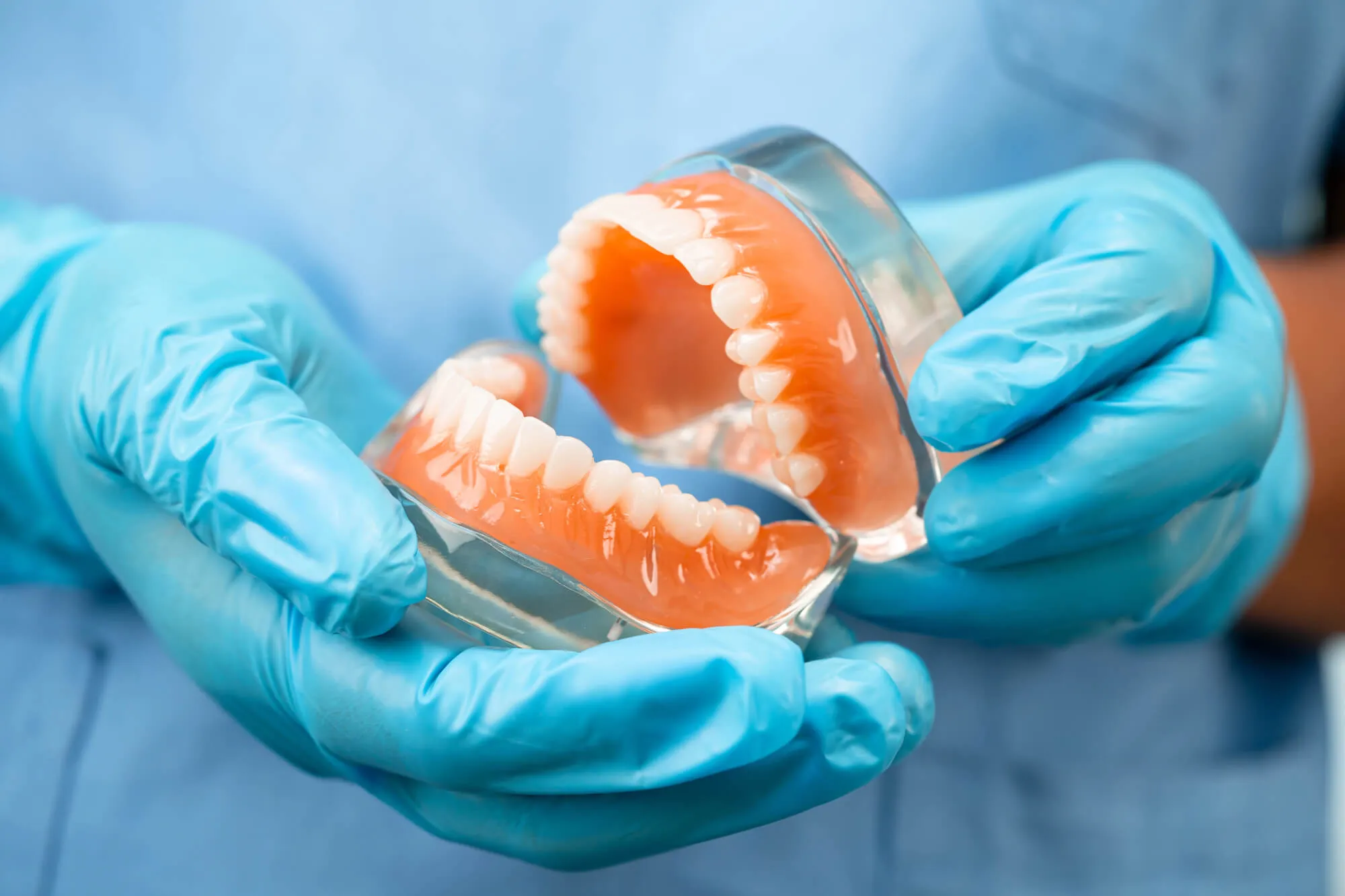Adjusting to dentures comes with a learning curve, and one of the most common concerns patients raise is how speech may change. It’s not unusual to notice words sounding different or to feel like your tongue and dentures aren’t in sync during conversation. While this can feel frustrating, it’s important to know these changes are temporary. With practice and guidance, speech becomes clearer and more natural.
If you’re considering dentures in Birmingham, AL, here’s how they may affect speaking and what you can do to adapt.

How Dentures Can Affect Speech
Dentures sit on the gums and rely on suction, clasps, or adhesives for stability. While they restore missing teeth, they can also slightly alter how the tongue, lips, and teeth work together when forming sounds.
Common Early Speech Changes
- Whistling or lisping: Certain letters like “s” and “f” may sound sharper or less defined.
- Difficulty with longer words: Pronouncing words that require complex tongue movements can feel harder at first.
- Muffled sounds: If dentures are slightly loose, they may shift and affect clarity.
These challenges are normal during the adjustment phase. Most people adapt quickly once the mouth learns new patterns.
Why Dentures Affect Pronunciation
Speech depends on airflow and precise contact between the tongue and teeth. Dentures change the surface and spacing, so the tongue needs time to adapt. Even slight differences in tooth height or alignment can affect sounds. This doesn’t mean dentures will permanently change speech—only that the mouth must adjust to the new positions.
Factors That Influence Adjustment
- Fit of dentures: Well-fitting dentures reduce speech issues and feel more natural.
- Muscle adaptation: The lips, cheeks, and tongue gradually strengthen and adjust.
- Practice time: Speaking aloud and practicing common words shortens the adjustment period.
Tips for Clearer Speech With Dentures
Practice Reading Aloud
Spend 10–15 minutes each day reading from a book or newspaper. This helps train the tongue and strengthens oral muscles. Reading aloud also highlights which words are most challenging so that you can focus on them.
Repeat Problem Words
Words with “s,” “sh,” “f,” and “th” often need extra attention. Repeating tongue twisters or practicing these sounds in front of a mirror can speed up adaptation.
Speak Slowly and Clearly
Rushing through words can make new dentures feel more noticeable. Slowing down gives the tongue time to adjust and makes speech sound smoother.
Stay Hydrated
Dry mouth can make speaking with dentures harder. Drinking water throughout the day helps keep the mouth comfortable and reduces friction.
Work With Your Dentist
Dentures may need minor adjustments if speech changes persist beyond the normal adjustment period. A quick visit can correct pressure spots or improve fit.
Regaining Confidence in Speech
Most patients find that any changes in speech are temporary and improve with daily use. In fact, many report clearer speech over time compared to when they had missing teeth, since dentures restore proper tooth structure and support. Confidence grows as practice pays off, making conversations feel natural again.

Speak Clearly With Our Dentures in Birmingham, AL
Dentures don’t have to prevent confident communication. Most patients adjust quickly and regain natural speech with the right fit, practice, and support.
At Church Family Dental, we provide dentures that feel natural, fit securely, and support your everyday life. Schedule a consultation with our team today to regain confidence in both your smile and your speech.





.svg)
.svg)

